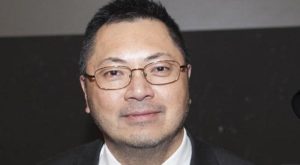New race discrimination commissioner appointed
 Multicultural community leader and lawyer Chin Tan has been named the nation’s new race discrimination commissioner.
Multicultural community leader and lawyer Chin Tan has been named the nation’s new race discrimination commissioner.
Attorney-General Christian Porter announced Chin Tan would take up the role from this week.
Mr Tan has most recently been working at Swinburne University in Melbourne as the director of multicultural engagement, and was previously head of the Victorian Multicultural Commission.
He was born in Malaysia, but moved to Australia for university before embarking on a 20-year legal career.
Mr Tan is replacing Tim Soutphommasane, who ended his five-year term in August.
Mr Tan has said he sees his role very differently to his predecessor and will not engage in advocacy or political commentary.
Attorney-General Christian Porter praised Mr Tan as “a well-known and recognised leader in the multicultural community” who would “represent all Australians”.
In a clear departure from his predecessor, Mr Tan said there were limits to the power of “calling out” racism – even for the race discrimination commissioner.
“Calling out racism is very important, but I want to be very careful that we put things in context – because I do share a view that that can be overplayed sometimes,” he told media.
“It’s important to remember the race discrimination [commissioner] role is not meant to divide, it’s meant to enhance communities and strengthen them.”
Mr Tan was born in Malaysia to Chinese parents, and migrated to Melbourne in the 1980s. After leaving commercial law in 2011, he headed the Victorian Multicultural Commission, and since 2015 he has been director of multicultural engagement at Swinburne University of Technology.
In 1999, he unsuccessfully sought Liberal preselection for the Victorian state seat of Bennettswood. Since then, he maintained sporadic involvement with the Liberal party, finally resigning his membership a month ago.
His new $350,000-a-year job sits within the Australian Human Rights Commission, which has been the subject of political controversy since the Coalition came to loggerheads with former president Gillian Triggs over asylum seekers.
Some conservatives had argued for the race discrimination role to be scrapped or renamed, but the government opted to do neither.
“There are obviously racial challenges many countries would have,” he told SBS News.
“But it’s not the same as equating the whole nation as being racist.”
“I’ve always espoused the view that Australia, compared to many other countries around the world, has a far better system, in the sense that it is a non-discriminatory system right across, and that has given us the backbone to be able to find opportunities in this country as well.”
But he said to make sure that remains the case means ensuring equality in access to opportunities for individuals.
“I think education is an important element about defeating, combating, tackling racism. The counterpart arrangement is to ensure that we provide opportunities for people to get ahead financially, economically, socially.
“And this an important factor to help people to feel independent, confident in themselves. And to be able, therefore, in many ways, help tackle racism.”
He said it is regrettable that the office of race discrimination commissioner has become politicised, and he urged politicians to be more respectful when speaking on potentially divisive issues.
“Respect is terribly important to help engender that balanced capacity to be able to be sure that we don’t divide,” he said, adding that it also important that Australian society is robust enough to handle debate.
“People are entitled, in a free country likes ours, to make those comments as they see fit.”
“But I believe the strength of what we do is to have a community that has all the trappings and all the mechanisms and virtues necessary to ensure they do not dominate the lives that we have.”
He said he won’t be shying away from controversial race issues, such as a previous proposal to abolish section 18C of the Racial Discrimination Act, which prohibits offending, insulting, humiliating, or intimidating another person, or group of people, based on their race, colour, national or ethnic origin.
But in the end, he wants to be effective and encourage less polemical debate.
“If there is a public debate again, if there is, I suppose, an agitation or a view, an interest, about how we can change the law at any time, I’m happy to be a part of that debate,” he said.
He said his ultimate wish is that race is not an issue that divides Australians.
“I see my role as uniting, and that that race should not be an issue which divides Australians. And my role is to ensure that we protect Australians, to ensure that they have the equal opportunity to proceed and to enjoy themselves as citizens of this country.
Laurie Nowell
AMES Australia Senior Journalist












